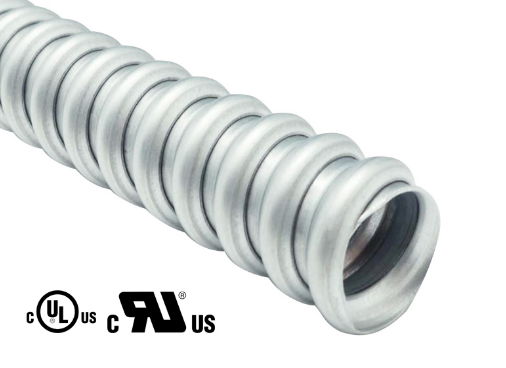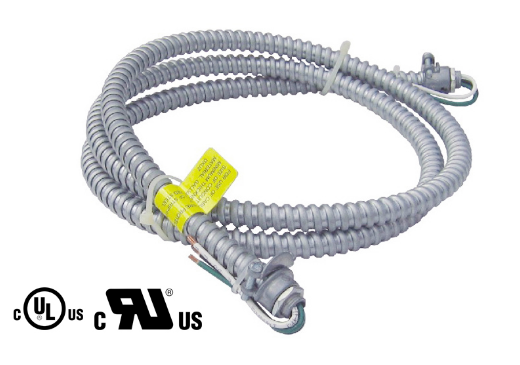Jan. 15, 2024
At Flexible Technology Co., Ltd., we supply flexible electrical conduit to customers in various markets. As these components are designed to connect and protect electrical wiring, cables and other equipment, they play a critical role in many electrical and electronic applications. That’s why it is important to choose carefully when you need electrical conduit for your project.
This guide will explain what you need to know before buying conduit for your application. It provides an overview of what electrical conduit is, what types are available and what to consider before installing conduit.
What is Electrical Conduit?
Electrical conduit refers to tubing installed by electricians for the purpose of safeguarding and directing electrical wiring. Its composition may vary, utilizing rigid or flexible materials like metal, PVC, or thermosetting resin, depending on its intended application. This conduit is commonly present in attics, basements, crawl spaces, as well as on diverse interior and exterior surfaces.

What Types of Electrical Conduit Are Available?
Electrical conduit comes in both rigid forms, such as metal, PVC, or thermosetting resin, and flexible options like metal (FMC), liquid tight metal (LFMC), and liquid tight non-metallic (LFNC). These conduits are available in various sizes, and each type has specific usage limitations.
Rigid metal conduit stands out as the most robust and substantial choice among conduit materials. It provides effective protection against rodents like mice and rats in settings such as basements and garages. Its durability makes it a preferred option for areas exposed to extreme or harsh conditions. Typically constructed from steel or aluminum, the latter is particularly recommended for high-moisture environments due to its corrosion resistance. When navigating corners during installation, the use of a conduit bender, conduit couplings, offset fittings, and/or elbows may be necessary.
Rigid PVC and thermosetting resin conduits represent the most lightweight and cost-effective options among conduit materials. They serve the purpose of shielding electrical wiring from moisture and dirt, possessing corrosion resistance, moisture resistance, and non-conductive properties. These conduits are suitable for outdoor and underground applications and find common use in scenarios such as lawn irrigation controls and swimming pools.
Flexible metal conduit (FMC), known as Greenfield or Flex in the construction industry, is advised for indoor use in dry locations as it lacks liquid-tight properties. Its flexibility and lighter weight contribute to easier installation compared to rigid conduit. This type of conduit is commonly employed within the interior walls of residential and office buildings, as well as in cubicles and office ceilings for connecting power to light fixtures.
Liquid-tight flexible metallic conduit (LFMC) is usually coated with a waterproof plastic layer to prevent moisture ingress. Its flexibility allows for installation in areas with tight bends, where rigid conduit would pose challenges. Common applications include bridges, ground burial, paper mills, petrochemical facilities, and water treatment plants.
Liquid tight non-metallic flexible conduit (LFNC) is suitable for use in dry, wet, or oily locations. It can be used in indoor or outdoor environments for industrial and commercial applications. Typical uses include ground burial, HVAC units, pools and spas.

What Should I Consider Before Installing Electrical Conduits?
If you are making your initial purchase of conduit fittings from a supplier, it's crucial to consider the following factors to ensure that you obtain the most suitable solution for your requirements:
Are the fittings the correct size? Ensure that the fitting diameter aligns with the chosen conduit's diameter for a secure and liquid-tight connection.
What is the expected lifespan of the conduit and fittings? If the conduit is only temporary until the next remodeling project, consider more affordable, less durable conduit and fitting options.
Are the conduit and fittings suitable for the installation conditions? Conduit materials, both metal and non-metal, vary for resistance to intrusion, corrosion, and liquids. Fittings should match this durability. Opt for liquid-tight fittings with seals and rings for liquid-tight conduit.
Does the supplier offer the specific fittings needed? Choose a supplier that provides fittings compatible with the conduit required for your project.
Will the supplier deliver the fittings on time? Ensure the supplier can deliver the connectors alongside the conduit within your required timeframe.
Can the supplier offer a customized solution? If your project has unique specifications, choose a supplier capable of providing conduit and fittings tailored to ensure a safe and secure electrical connection according to your standards.
Why Partner With FLEXIBLE for Your Electrical Conduit Needs?
Operation of electrical equipment is dependent on safe, reliable and secure electrical connection. Electrical conduit protects electrical connections, which is why understanding what electrical conduit is, what types are available and what to consider before installing conduit is vital.
Looking for high-quality flexible electrical conduit and fittings? FLEXIBLE has got you covered! We are an industry-leading provider of flexible electrical conduit and fittings. To learn more about our product offerings, check out our product catalog or contact us today. For specific product questions or pricing details, request a quote.


















